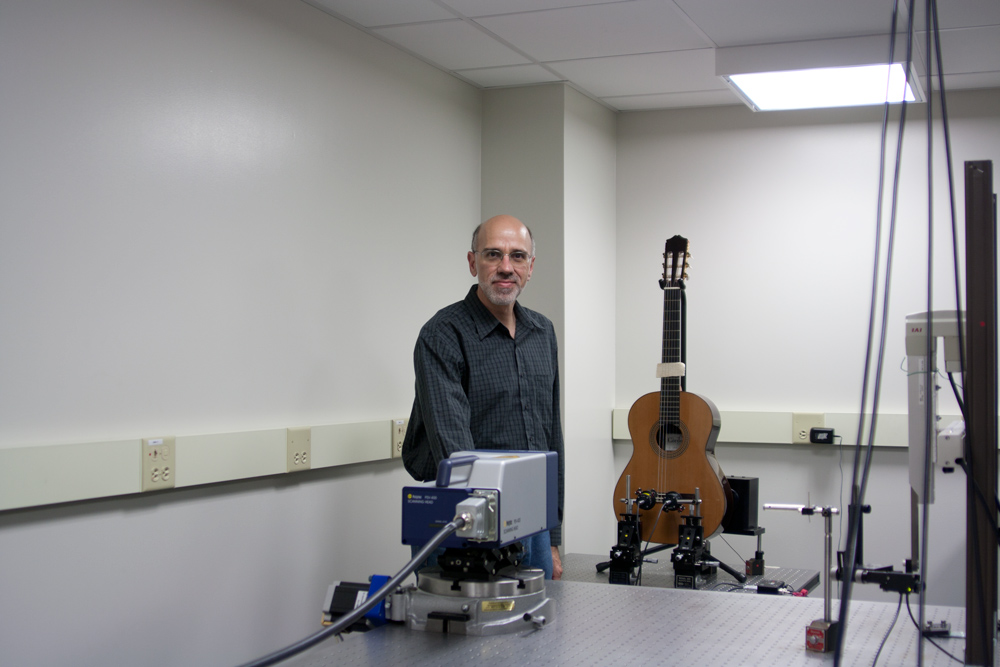Gustavus has always prided itself on its science opportunities, including small classes, contact with preeminent science scholars through the Nobel Conference and Rydell Scholar program and many opportunities for faculty-student research. In fact, between 1999 and 2008, Gustavus was ranked third highest in the nation among liberal-arts colleges as the baccalaureate origin of physics PhDs.
Gustavus’s science prestige is an asset for its students and has had a domino effect as well, allowing the department to receive five grants in the past 18 months. The most recent of these is a $253,000 grant to renovate the laboratories in the basement of Olin Hall. The grant is coming from the National Science Foundation (NSF) and is funded by the American Recovery and Investment Act of 2009. Tom Huber, a physics professor, submitted the application into a field of 400, and Gustavus was the recipient of one of 100 grants.
“The application went in about a year ago, and we were notified at the end of July,” Huber said. He submitted the initial 30-page science portion. When Gustavus became a finalist, they were required to submit another 38 pages that detailed the exact renovations the grants would cover. Warren Wunderlich, director of physical plant, and Bob Weisenfeld, assistant vice president of corporate and foundation relations, completed the additional application. They played a “key role in pulling this together,” Huber said.
In its review of Gustavus’s proposal, NSF said, “Gustavus Adolphus College has an excellent and ongoing record of providing exceptionally well educated undergraduate physics majors. This is a high quality proposal for a small, but very high quality, undergraduate physics program.”
Huber is excited about the renovations. A Doppler vibrometer was purchased in 2009 with another grant, and this new money will prolong the life and increase the effectiveness of this and other highly sensitive instruments in the basement of Olin Hall.
Equipment has been damaged previously by humidity, and sometimes experiments had to be postponed or rushed because of poor ventilation in the basement. “We would have to turn off the air conditioning to stop the blowing and then rush through the experiment before it got too hot,” Huber said. When working with such sensitive equipment, a neutral environment is crucial.
The money, among other things, will soundproof Huber’s acoustic lab that houses the vibrometer. In the acoustic labs and other labs in the basement, the ventilation system will be redone and the security systems improved. When potentially dangerous experiments are in progress, such as high-powered lasers, the current system involves putting a “Do Not Enter” sign on the door. The new system will hopefully include a key box and an automatic shut down system that will activate when the door is opened.
Though Huber says that the renovations are much less exciting than, for instance, the purchase of the new vibrometer, they are still “really critical. We moved in here 20 years ago, and the labs have been here for only 10-15 years. We put a bunch of boxes together for research labs.” In the interest of time and money, the school sacrificed quality. This grant will bring the labs to a more serious and competitive level.
The labs have the professors excited, but the benefits extend largely to students, too. The labs will be used for summer research opportunities, hands-on experience for students and research projects for senior honors majors, among others. Junior Physics Major Max Matheson is excited to use the labs post-renovation. “We use these labs a lot … My classes are in there four times a week,” he said. “I’m pretty stoked!”
